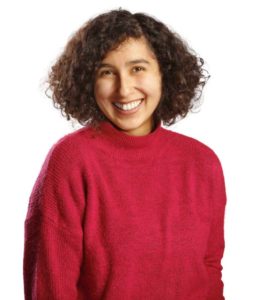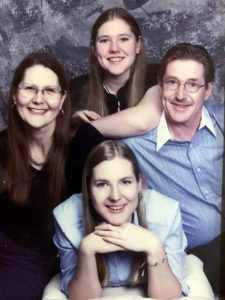Scholarship bridges music and culture
Julia Egan ’16E, ’21E (MA) says that receiving the Rosemary Utz and Douglas H. Jones Family Endowed Ethnomusicology Scholarship was like winning the keys to her life

Julia Egan ’16E, ’21E (MA)
Julia Egan ’16E, ’21E (MA) was adopted from Colombia, South America, and grew up in Brooklyn, NY. She played the guitar, enjoyed soccer, and loved riding skateboards. She thrived outside of the boundaries of what a ‘typical girl’ was supposed to do. She attended LaGuardia High School (the performing arts school that inspired the 1980s TV show, Fame) and then found her collegiate home at Eastman, where she would hone her skills as a classical guitarist.
One of Egan’s professors, Jennifer Kyker, had encouraged her to pursue a master’s degree in ethnomusicology and to study African music. That resonated with Egan, who had a proficiency for mbira (an African percussion instrument) and other instruments beyond the guitar. Besides that, she loved African music.
Egan has since immersed herself in the guitar music of the Tuareg—a seminomadic people of the Sahara in Africa. The guitar plays a key role in their culture. “Tuareg music was immediately striking to me,” she says. “It had been described to me as painful and revolutionary, and I wanted to know why.”
To better understand that “why,” Egan has been working closely with musicians from Niger who play the music and communicate its nuances, meanings, and depths to her.
“Through these connections, I have developed a deep appreciation for and a responsibility to the Tuareg, one that I hope will help others understand the important relationship between music and culture.”
In the future, Egan wants to facilitate new ways for scholars and other people to connect, noting that “music has a life beyond academia.” She is keenly aware of how music and music scholarship can be used to “include or exclude, to appropriate or appreciate, to subjugate or uplift.” And, she wants to lead important conversations about music, gender,
and social change.
Egan is especially grateful to the Tuareg people and her Eastman faculty for advancing her knowledge and understanding. She is also indebted to her scholarship donors. “Their support provided me with freedoms and privileges that I wouldn’t have had otherwise,” she says. “For me, this scholarship wasn’t like getting a Christmas present or winning the lottery—it was like winning the keys to my life.”

Rosemary Utz, Erica Jones, Doug Jones, and Carla Jones
In 2019, Douglas Jones ’85M (Flw) and Rosemary Utz ’79M (MD), ’85M (Flw) established the Rosemary Utz and Douglas H. Jones Family Endowed Ethnomusicology Scholarship as part of the Wegman Family Scholarship Challenge at Eastman School of Music. The couple’s fund provides scholarship and/or research stipends for graduate students in Eastman’s ethnomusicology program, which explores the music of other cultures, especially non-Western ones.
“The University of Rochester taught us to value diverse viewpoints in all disciplines. Understanding another culture’s music can facilitate better appreciation of its history, traditions, social structure, and often non-Western perspectives. Our gift to ethnomusicology at Eastman—where our daughter studied—supports our society’s need for improved intercultural acceptance.ˮ —Douglas Jones ’85M (Flw), Rosemary Utz ’79M (MD), ’85M (Flw), and Erica Jones ’07, ’10E (MA).
Learn more about the Eastman School of Music and its recently launched Centennial Campaign. For more stories like Egan’s and to learn about the difference scholarships make on people’s lives, read through the University’s 2021 Endowment Report and visit our Together for Rochester page.
— Kristine Thompson, April 2021

